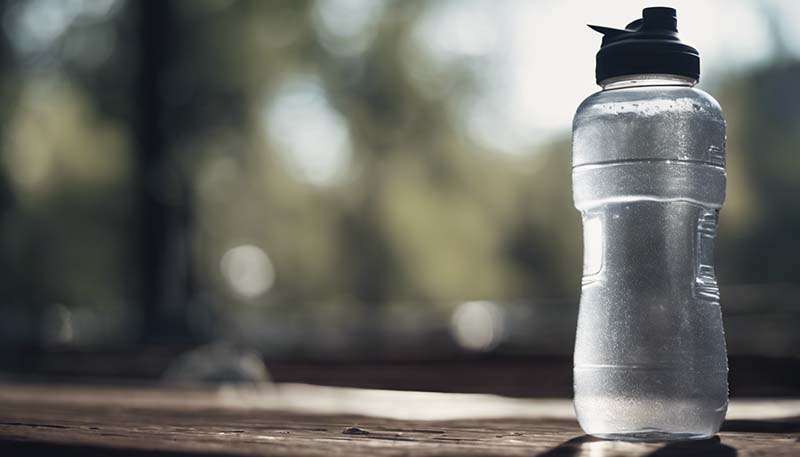Understanding the Importance of Hydration in Sports
2024-02-20
Understanding the Importance of Hydration in Sports
Introduction
Staying hydrated is essential for overall health and well-being, but it becomes even more critical when engaging in sports or physical activities. Hydration plays a crucial role in maintaining optimal physical performance, preventing injuries, and promoting recovery. In this article, we will explore the importance of hydration in sports, the effects of dehydration on the body, and tips for staying hydrated during physical activities.
The Role of Hydration in Sports
Hydration is vital for optimal physical performance in sports. Water makes up about 60% of the human body and plays a crucial role in various bodily functions, including:
1. Regulating body temperature: When you exercise, your body temperature rises. To maintain a stable internal temperature, your body sweats, which is primarily composed of water. Staying hydrated helps regulate body temperature and prevents overheating.
2. Lubricating joints: Water acts as a lubricant for your joints, reducing friction and wear and tear during physical activities.
Advertisement
3. Transporting nutrients: Water is essential for transporting nutrients and oxygen to your muscles, which helps fuel your workouts and maintain energy levels.
4. Removing waste products: Water helps remove waste products, such as lactic acid and carbon dioxide, from your body. This helps prevent muscle fatigue and soreness.
Effects of Dehydration on the Body
Dehydration occurs when your body loses more fluids than it takes in. Even mild dehydration can have negative effects on your physical performance and overall health. Some of the common signs and symptoms of dehydration include:
1. Thirst: Thirst is the first sign of dehydration, but by the time you feel thirsty, your body is already dehydrated.
2. Fatigue: Dehydration can cause fatigue and weakness, making it difficult to maintain energy levels during physical activities.
3. Headaches: Dehydration can cause headaches due to reduced blood flow to the brain.
4. Dizziness: Dehydration can lead to dizziness and lightheadedness, increasing the risk of injury during sports.
5. Muscle cramps: Dehydration can cause muscle cramps and spasms, which can negatively impact your performance and increase the risk of injury.
6. Reduced cognitive function: Dehydration can impair cognitive function, affecting concentration, decision-making, and reaction time.
7. Kidney problems: Prolonged dehydration can lead to kidney problems, as the kidneys rely on water to filter waste products from the blood.
Tips for Staying Hydrated in Sports
Staying hydrated during sports is essential for optimal performance and overall health. Here are some tips to help you stay hydrated during physical activities:
1. Drink water before, during, and after exercise: Start your workout well-hydrated by drinking water before you begin. Sip water throughout your workout and continue to drink water after you finish to replenish lost fluids.
2. Monitor urine color: A well-hydrated person will have light yellow or clear urine. Dark yellow or amber-colored urine can indicate dehydration.
3. Weigh yourself before and after exercise: Weigh yourself before and after your workout to estimate your fluid loss. Aim to drink enough fluids to replace the weight lost during exercise.
4. Choose the right fluids: Water is the best choice for most people during exercise. However, if you are engaging in prolonged or high-intensity activities, consider consuming sports drinks that contain electrolytes to help replace lost minerals.

5. Eat water-rich foods: Include water-rich foods, such as fruits and vegetables, in your diet to help increase your fluid intake.
6. Listen to your body: Pay attention to your body's signals and adjust your fluid intake accordingly. If you feel thirsty, drink water. If you experience symptoms of dehydration, such as dizziness or muscle cramps, take a break and rehydrate.
7. Train in a controlled environment: If possible, train in a controlled environment, such as an air-conditioned gym, to minimize fluid loss due to excessive sweating.
8. Consult a professional: If you have specific hydration needs or concerns, consult a sports nutritionist or healthcare professional for personalized advice.
Conclusion
Hydration is crucial for optimal physical performance, preventing injuries, and promoting recovery in sports. Dehydration can have negative effects on the body, including fatigue, muscle cramps, and impaired cognitive function. To stay hydrated during sports, drink water before, during, and after exercise, monitor your urine color, weigh yourself before and after your workout, choose the right fluids, eat water-rich foods, listen to your body's signals, train in a controlled environment, and consult a professional if needed. By prioritizing hydration, you can enhance your sports performance and maintain overall health and well-being.
Comments